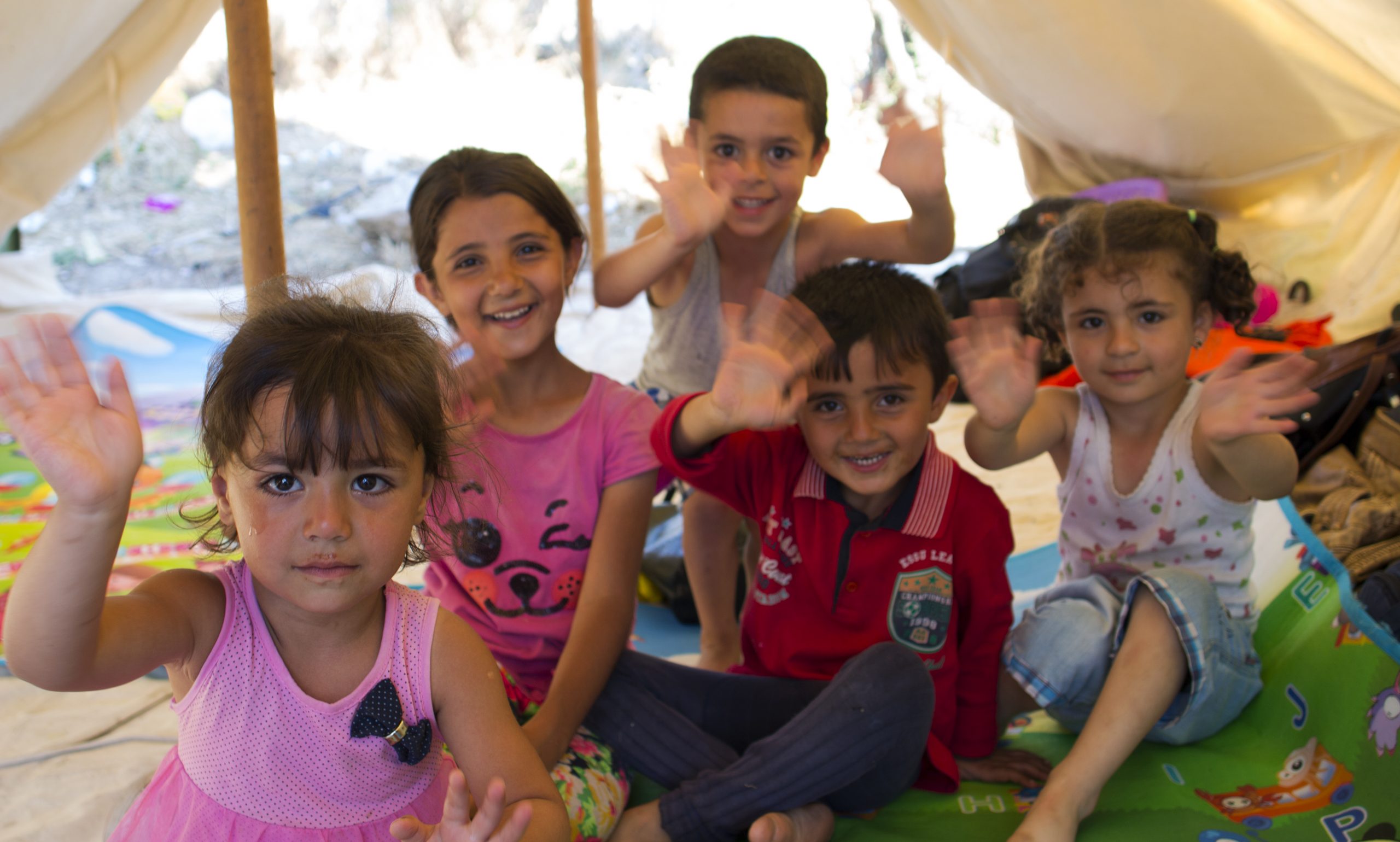CPTnet
8 July 2016
MEDITERRANEAN REFLECTION: The children along the city walls of Chios
by Ronbir Mohammad
 |
| Syrian refugee children waiting to get the boat to Athens |
We are a CPT team of three persons. We are walking along the city
walls of the Greek island of Chios, with the border-polluted sea
stretching before us. The refugees reside in tents, organised in two lines.
Kids are playing. Nothing can make children stop playing. Even under the midday
sun; even though the great powers of the world, through their agreements,
prevent these families from moving on. But
they play. They run up to the top of garbage hills and then run down, laughing
and shouting. “Kids!” my friend says, to show that he is
delighted but not surprised.
The twelve-year-old Me walks on small paths up the hill,
passing alongside landmines, walking over the skeletons of the Iraqi and
Iranian soldiers who died here in 1980s. He jumps out of me. He does not even
look back at me. He goes to the kids of Chios and starts playing with them. I
look back and wait for him to come back, to jump back into this grown-up self. He does not seem to care. My teammates tell me
that we should move on. So I move on with them and leave the little Me behind.
I have had this feeling many times. Whenever I am in a refugee
camp I experience everything again. I once had a platonic love affair with a
girl who lived in another camp, nine hours of walking from our camp. I
wrote down her name in different shapes everywhere. I wrote her name on
stones, on tents, on the ground. I wrote it with the blood of the animals
that our butcher-neighbour slaughtered. I wrote it with pens and I carved it
with stones. I closed my eyes and imagined her soft smile. Smiling at
the humanitarian NGOs who gave us tuna cans and rice and
other stuff. I was a twelve-year-old kid referred to as a random
number. And I missed my mom. She was left in our town. We could not take her
with us. She was injured, disabled by a grenade in my home village by the
same war that forced us to flee. I missed the smell of
the barbecue chicken liver wrapped in bread that she made for us when
she did not have time to cook her delicious food.
I remember that we were looking at the cloud formations in the sky
to predict the arrival of the next storm. The storm was our constant visitor.
We were twenty people, my siblings, my grandma and my uncles and
cousins. We all shared the same tent, 4×6 meters. We shared the food, the
laughter, the frustrations and the storm. When the storm came we woke
up in the middle of the night, because the bamboo support post of the
tent had broken and we had to hold up the unbroken part of it so that the tent
would not collapse over us.
The kids in the illegal refugee camp along the city wall of Chios
are abandoned. Stuck in a state of limbo where they are getting grilled by the
sun above the wall.
I am walking there with my child-self behind me, not even looking at Me
anymore and I am wondering: what have we, all these NGOs and volunteers, done
for them? What have we achieved? Whose name are those kids carving on the
stones of Chios? Who do they miss? What pillar are they holding
up against the storm?
CPT-Europe is accompanying refugee children on the island of Lesvos. You can accompany them too.



